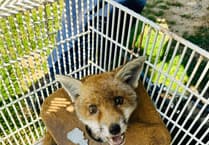IN the heart of the Vietnamese jungle lives an elusive but astonishing animal known as the Owston’s Civet.
This curious yet endangered animal can only be seen in the jungles of Vietnam, Laos and southern China. Failing that, you can see them at Shaldon Zoo, one of only three zoos outside of Vietnam that keep them.
Over the past 20 years, Shaldon Zoo has been working closely with a Vietnamese charity called Save Vietnam’s Wildlife to protect Owston’s civets and try to post their dwindling numbers.
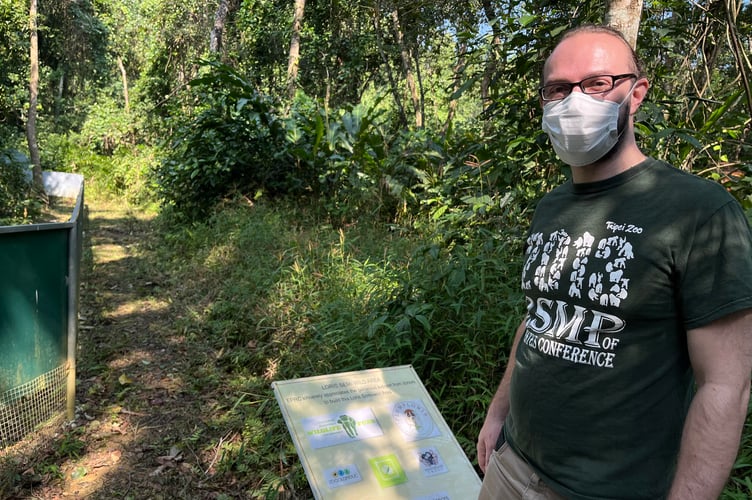
Last month, Zak Showell, Director of Shaldon Zoo and the European Breeding Program Coordinator for Owston’s Civets went out to Pu Mat National Park to help in the struggle to keep this astonishing creature in the wild.
‘They kind of look like they were drawn by a child,’ said Zak, ‘kind of like a furry dinosaur.
‘They’re also nocturnal, so not always the greatest animal to show at a zoo.’
As the Breeding Program Coordinator for Owston’s Civets, Zak works closely with the two other zoos that house them, both in England. But he also collaborates closely with Vietnam’s breeding programmes as well.
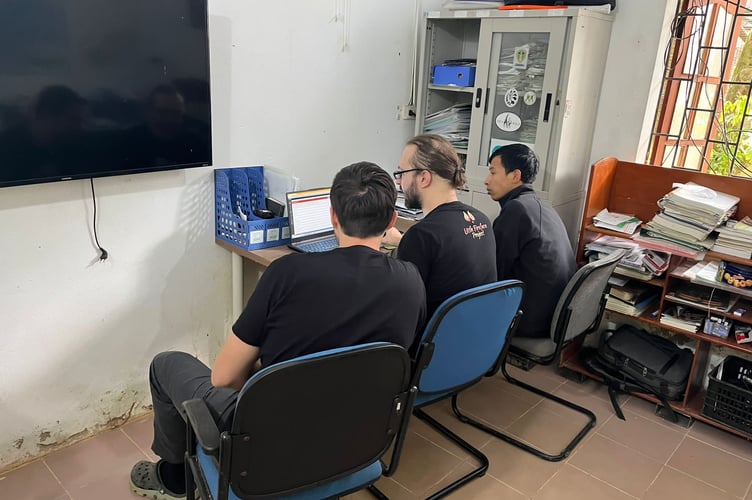
Zak said: ‘I essentially look at the population, who’s related to who, which animal would be a good genetic match and make recommendations to move those animals to and from different zoos. We’re essentially a matchmaking service.’
Shaldon Zoo first started spearheading the conservation programme for Owston’s Civets 20 years ago when Stewart Muir, the zoo’s founder responded to a call for help from Save Vietnam’s Wildlife.
Zak explained: ‘Shaldon Zoo has always liked to work with small-scale projects and lesser-known species. We aren't big enough to have the lions and the tigers but smaller, lesser-known species need our help as well, and Shaldon can offer that.’
Considered an endangered animal, Owston’s Civets have all but disappeared from Vietnam’s lowlands and now primarily inhabit more mountainous and inaccessible areas of the country.
The main threats to them are deforestation, being caught and sold into the pet trade and being snared accidentally by people trying to catch food such as deer.
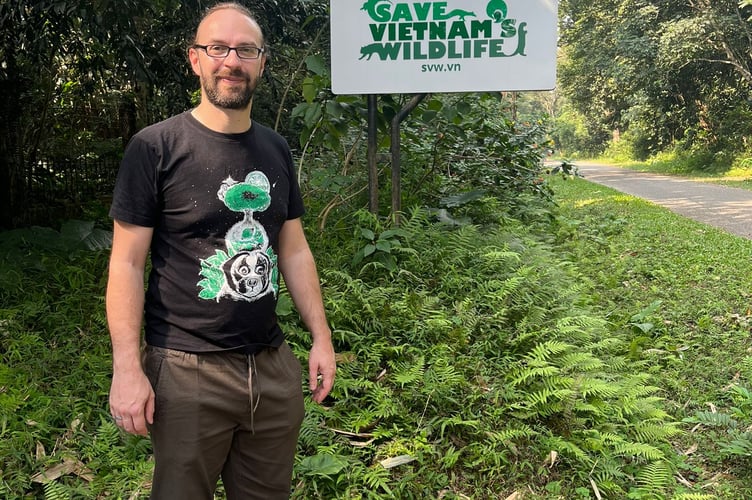
Alongside working hard on a European breeding programme, Zak went out to work directly with Save Vietnam’s Wildlife at the end of last month.
Zak explained: ‘Emails are great but there's nothing like actually going around, sitting around a table and working together directly, it re-energises and re-enthuses everybody.
‘My day-to-day involved going to rescue centres, sharing knowledge and working with the staff. I met Thai, who is the Director of Save Vietnam’s Wildlife and discussed our conservation work.
‘I met with their head keeper and rescue team that are working with the rescued civets. I watched some of their veterinary procedures with the vet team as well. We were very fortunate in that we went late one night to watch some of the night feeds. It was really all about knowledge sharing.’
The entire time, Zak was struck by the hospitality of everyone he worked with.
‘The highlight, except for the civets themselves, were the people. They were all so hospitable, so welcoming. They wanted to show us Vietnam. They wanted to show us the best time. One of the nights we went out for dinner and Thai was there and made sure that he ordered every dish that would show off Vietnam.’
Save Vietnam’s Wildlife have big plans for the future of civics and Shaldon Zoo plans to play a critical role in realising his plans.
Zak said: ‘Save Vietnam's Wildlife has started building a conservation breeding centre, aiming to house and breed Owston’s civets and then release the offspring back to the wild.
‘We are collaborating on that with them through funding, and through awareness raising. We are also investigating the possibility of maybe sending some of the animals from Europe to join that breeding program in Vietnam and we are continuing to do huge amounts of research to further understand Owston’s Civets.
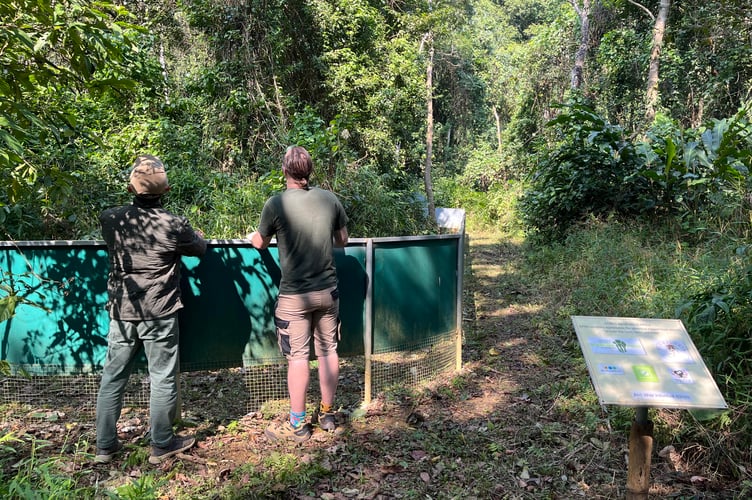
‘If we're going to be breeding these animals to release them to the wild, we need to nail that breeding process. We have the experts and the technology here in the West, which means we can develop all these protocols, test all these things, and then share that knowledge with conservationists in Vietnam.
‘I'm hopefully going to go out again maybe in three to four years time to just continue this project moving forward and keep doing do our bit to save the species.’

